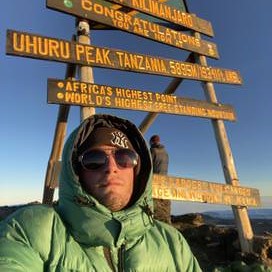HBA Sustainability Certificate
Empowering the next generation of sustainable leaders
Passionate about solving big picture challenges and fundamentally understanding what forces drive the world around us. As a software engineering and business administration student, a large number of the problems of the next 50 years will be at the focal point of my career. Enthusiastic about travel, sports, art and education, allows me to expand what I think of as a traditional career path into something I can truly be proud of.
What is your personal definition of sustainability?
Sustainability has everything to do with conscious decision making. It is a fine balance between doing everything in your power to advocate for and enact sustainable values, while understanding one’s personal constraints in reaching those goals. Not everyone will be able to make a significant change to the status quo, but moving in the right direction is what is key. To illustrate this, consider leaders in developing nations. Their global power and international political influence will not trump those nations in the G7, yet there is still an expectation of advocating for sustainable development. This has the transverse effect of allowing future leaders to bolster the initial efforts and to grow sustainably, rather than to take an approach where forthright gains and later shadowed by risky deal making and poor policy decisions.
What role do you see sustainability playing in your professional career?
As I explore career options, I am often drawn to when excites me about leadership and professional development. I would like to work on problems that are key to making the world a better place. This means working for multi-national corporations, dealing with large scale issues in industries like metals & mining, oil & gas, and industrials. With the tailwinds of reshoring manufacturing to North America, the energy transition, and the massive demand for rare earth metals, there is plenty of room for mismanagement and poor leadership. Ideally, I can be someone who is within those roles and sacrifices whatever need be to support the system previously built and be bold enough to make changes necessary to sustain prosperity and to see quality of life improve, not just home, but in places all over the world.
What sustainability projects have you been engaged in?
The best example of a sustainability project I have been involved with is the Africa Service Learning course, taught at Ivey. The thesis of the course is to educate and empower the next generation of leaders in Africa. This is very important, and to me, more important than lots of other types of service work done in African nations. In order for Tanzania, the country I travel to and taught in, to be sustainable and grow naturally there needs to be competent leaders at the helm. For decades, Africans have been put down by colonist systems and corrupt governments and corporations. Africa does not need outside “support” nor can they afford exploitation of their land and people. What they need are more proactive and disciplined leaders to overpower those who seek to destroy their pride. With the right education of the next swath of managers and government officials, Africa will be able to grow sustainably.
Peter Fornasiero
